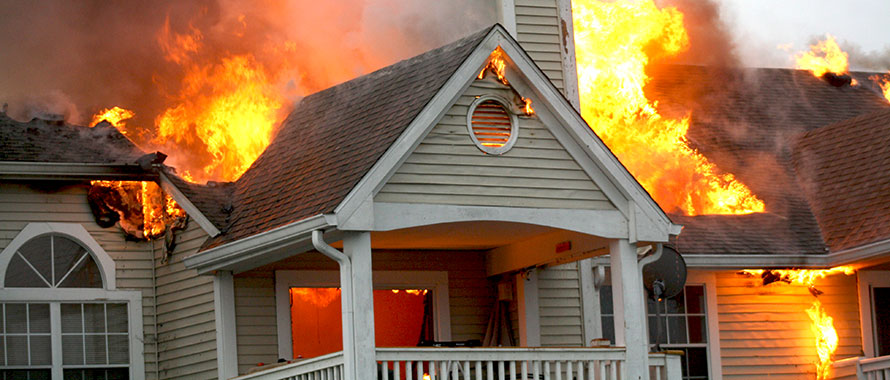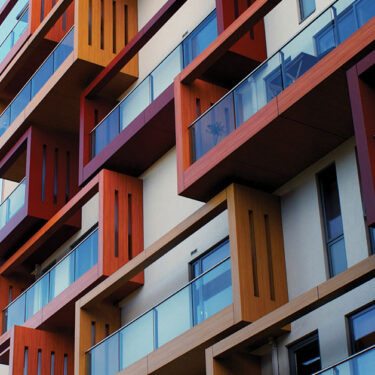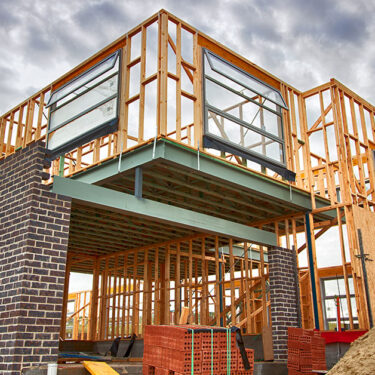Residents of an apartment complex in Atlanta, Georgia, that was severely damaged in a three-alarm fire on Nov. 10 have filed a class-action lawsuit against the building owners, claiming the owners failed to maintain the property’s fire suppression system and allowed access to the roof, where the fire began. The devastating blaze that destroyed most of the Reserve at LaVista Walk structure and left it at risk of collapse was reportedly caused by rooftop fireworks that were set off by two individuals, who were both arrested.
In their lawsuit, residents claim the building’s fire suppression system had broken control valves and corroded sprinkler heads, possibly delaying the response, and that the owners knew tenants were accessing the roof but failed to take action to prevent it, Rough Draft Atlanta reported. Resident complaints were also reportedly ignored prior to the blaze, according to Fox 5 Atlanta.
Featured Solutions
These costs could be covered by an apartment complex’s Commercial General Liability (CGL) Insurance, which can respond when apartment owners are sued over third-party personal injuries or property damage. It is a key policy for building owners, who operate in a high-risk industry where litigation is increasingly common, said Ryan Short, Senior Underwriter, Commercial Insurance, Burns & Wilcox, Atlanta, Georgia.

If there was a series of events beforehand … that just opens the door for a lawsuit that could end up costing hundreds of thousands or even millions of dollars.
“When attorneys get involved, they are usually going to drag everybody into the lawsuit, and typically, they are going to win,” Short said. “At the end of the day, it is always going to come back on the owners.”
Class-action lawsuit can mean ‘game over’ for apartment owners
According to the Atlanta Journal-Constitution, all residents at the Reserve at LaVista Walk apartments were able to evacuate the building without major injuries, but 17 individuals were treated for smoke inhalation and minor injuries. Multiple residents at the 283-unit building told media outlets that they lost nearly all their belongings.

When attorneys get involved, they are usually going to drag everybody into the lawsuit, and typically, they are going to win. At the end of the day, it is always going to come back on the owners.
While the complex owner’s Commercial Property Insurance would generally cover the physical damage to the building caused by the fire, its CGL Insurance could pay for resident injury claims, damaged or lost tenant belongings, and costs related to the class-action lawsuit including legal defense and settlements. If the property owners carried Excess Liability Insurance, this could provide liability coverage exceeding standard CGL Insurance limits.
“The costs could skyrocket if there was a serious injury to a resident, but with all of that property, if the claim is justified then the CGL Insurance for the apartment could easily get to full policy limits,” White explained. “With punitive damages, it could go above and beyond that. Then they have a full-limit loss on their loss history and their premiums are likely going to quadruple or more in terms of trying to find replacement insurance coverage.”
When purchasing CGL Insurance, apartment complex owners should ask about whether defense costs are included inside or outside of the limits, White noted. Even in the absence of serious injuries or fatalities, a class-action lawsuit of this magnitude could put an apartment owner out of business — and have a ripple effect on the broader community. “In a macro view, if [large losses] become a growing trend, premiums will go up for all apartment owners,” he said.

Anytime you talk about class-action lawsuits, it is often a game-over situation.
For many apartment owners, Short said, recovering from the impact of a class-action lawsuit may not be possible. “This is one of those situations where you do not usually get back into the business of doing whatever you were doing before,” he said. “Anytime you talk about class-action lawsuits, it is often a game-over situation.”
High volume of claims impacts Habitational Insurance market
Owning habitational property comes with a variety of risks, according to White and Short. In addition to fires and other property hazards, apartment owners may also be sued over incidents such as slip-and-fall accidents and physical assaults. For example, a woman who reportedly slipped and fell on a defective stair at her apartment complex was recently awarded a $350,000 jury verdict for her injuries, a law office in Philadelphia announced in the Philly Voice on Nov. 9. In Ontario, Canada, in February, a court upheld a judgment against a property owner who failed to remove ice and snow from walkways, reportedly leading to a tenant’s slip-and-fall injury, Law Times reported.
“There are always going to be accidents; you are never going to be able to prevent all of them,” White said. Still, property owners should “do whatever is in their power to prevent them from happening,” he said. “The slip-and-fall claims may be less catastrophic, but the volume is very high,” he said.
Violent incidents are another major concern for apartment owners. In September, Toronto Police responded to a report of a woman who was stabbed in an apartment lobby, according to the Toronto Sun. In June, two individuals were injured after a shooting in the lobby of an apartment complex in Malden, Massachusetts, WCVB reported.
Some CGL Insurance policies for apartment complexes may exclude or have a separate sublimit for assault and battery claims, so this is an important discussion to have with an insurance broker, Short said. “There may also be a firearms exclusion, as well,” he explained. “If you have a sublimit for assault and battery but someone gets shot and there is a firearms exclusion, then it is still excluded.”
Due to the frequency of violent acts, assault and battery “is always a tough coverage for some apartment owners to secure,” White said. Apartment complexes, overall, are “a notoriously high-claim class” of business when it comes to insurance, according to White. Lawsuits like the class-action recently filed in Atlanta “are kind of like a warning sign for apartment owners and insureds in the habitation class — a foreshadowing of what is to come because of the nature of this litigious environment that the country is continuously heading toward,” he said. “Especially with all the nuclear verdicts in the auto industry, I think that will start coming down to other industries, like habitation.”
Class-action lawsuits by residents are also becoming more common. “We are seeing more and more of this in terms of renters banding together seeking justice after they feel they were wronged,” White said.
According to Short, increasing claims and severity in the industry has made it more costly for apartment owners to purchase insurance. “What it turns into is very unfortunate for every owner of apartment complexes,” he said. “Habitation in general is becoming one of the most difficult lines to write. Nobody really understands the risk until they start seeing claim after claim.”
Short referenced the 2021 collapse of the Champlain Towers South condo tower in Surfside, Florida, which killed 98 individuals and led to a $1 billion settlement in 2022 for those impacted by the tragedy, according to CNN. Since that time, many insurance carriers have been hesitant about insuring apartment complex directors and officers, Short said.
“It is kind of on everybody’s radar now,” he said, and carriers will want to know that apartment owners are doing everything possible to prevent serious incidents. “You must keep up with building standards and safeguards. It goes beyond insurance, at that point, but rather doing what is smart for your own business and your residents. At some point, the onus stops being on the insurance carriers and starts being on the owners to do the right thing.”
Apartment owners must go ‘above and beyond’ to manage risks
After the apartment fire in Atlanta, one resident at the Reserve at LaVista Walk apartment complex said the building’s fire alarms would “constantly” go off, the Atlanta Journal-Constitution reported. According to the U.S. Fire Administration, smoke alarms need to be replaced 10 years from the manufacture date and should be tested regularly. Fire suppression systems found in apartment complexes may need to be inspected professionally, Short said.

No longer can you just do the bare minimum safety guidelines. They are really going to have to go above and beyond to make sure those controls are in place and that their clients feel secure.
If insurance claims involving apartment complexes remain high, building owners are likely to face “more pressure to maintain safety protocols,” Short said. That could include using locks or other measures to prevent residents from going out on the roof, for example.
“If they had reports of residents going up there, that is something you have to stop, right then and there,” White added. “It is extremely important for them to put in those controls and do the best they can in order to prevent these types of accidents.”
When purchasing CGL Insurance, contracts and forms should be reviewed carefully, Short advised. “Read all the forms you can,” he said, including any exclusions and available enhancements. “It is also mostly about finding a trustworthy broker. At the end of the day, we can press for these extra things that will protect them better than what is standard.”
Other risk management steps apartment owners can take include installing cameras, additional lighting, non-slip flooring and rubber mats, and hiring security guards. “No longer can you just do the bare minimum safety guidelines,” White said. “They are really going to have to go above and beyond to make sure those controls are in place and that their clients feel secure.”









